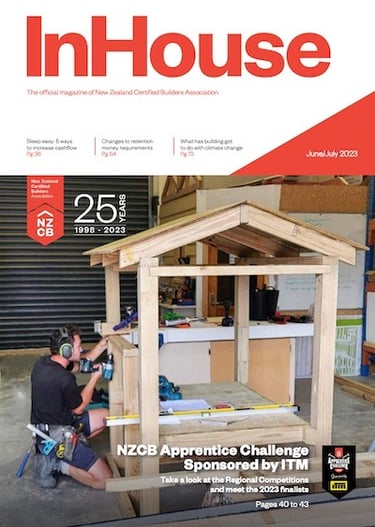Five Ways to Improve Cash Flow
improve cash flow
& Sleep easy
It doesn’t matter how profitable you are if you can’t balance incoming cash and outgoing expenses. Do you have times where you struggle to pay suppliers, payroll or yourself? Here are five practical tips to help you manage your cash flow, so you can get a better night’s sleep!

Need help with your finances?
1. Invoice quickly
The best way to avoid cash flow problems is to speed up the time it takes to send your invoices.
Have regular invoicing cycles or set pre-determined stage claims
Invoice clients as soon as the work is done, rather than at end of the month
Invoice for any variations as soon as they’re completed – don’t wait until the end of the project!
Have short payment terms, for example five working days
2. Issue valid payment claims
Following the simple payment claim processes outlined in the Construction Contracts Act can help you get paid on time and avoid timely and costly disputes. For your invoices to be valid as payment claims, they must follow this criteria:
Be in writing
Identify the construction contract it relates to
Identify and carefully describe the construction work you’re requesting payment for
Identify the time period the work was done in
State the amount claimed
Identify how the amount claimed was calculated
Include the correct due date for payment
It must say “This is a payment claim under the Construction Contracts Act 2002”
It must be accompanied by a Form 1, a written notice outlining the process for responding to the claim and the consequences of not responding if payment in full is not made
We recommend getting professional advice to make sure your invoice template complies with the Act.


4. Use accounting software
A good accounting software, like Xero, will help you stay on top of your finances. You’ll find it easier to manage your accounting and tax workload and stay up to date. This will give you accurate financial information so you can budget and project future cash flow. If you’re really not confident with numbers, hire a professional bookkeeper or accountant to manage it for you.
3. Follow up late payments
Getting paid on time is crucial for positive cash flow, so have a process for communication and escalation for overdue payments. For longer payment terms, it’s a good idea to send an automated invoice reminder a few days before the due date.
Immediately a payment is overdue, send an automated reminder that’s direct, but polite. If it remains unpaid, follow up with a phone call and don’t be afraid to take more formal action if you need to. If you’ve issued a valid payment claim and a client is disputing it, they must issue a valid payment schedule that follows the requirements of the Act.
5. Regularly review your business operations
Running a business isn’t ‘set and forget’. Continually review and refine your systems, pricing and expenses to find smarter solutions, increase efficiency and reduce costs. For example:
Take advantage of technology or apps that will streamline your business processes and save you time
Are your margins tight because you’re charging too cheaply? Remember that if you use your website, social media and communications to highlight your experience and where you can add value, potential clients won’t make their decision based on cost alone.
Regularly look at your expenses. Cull or make changes so you have everything your business needs, but not more than it needs
Remember your cash flow needs to constantly monitored. That way you’ll not only know how much money you’re taking in, but how much of it you have available to use.

Amanda is a regular contributor to Inhouse
Published in print and online, InHouse is the official magazine for NZ Certified Builders.
This article featured in the June/July 2023 issue.








